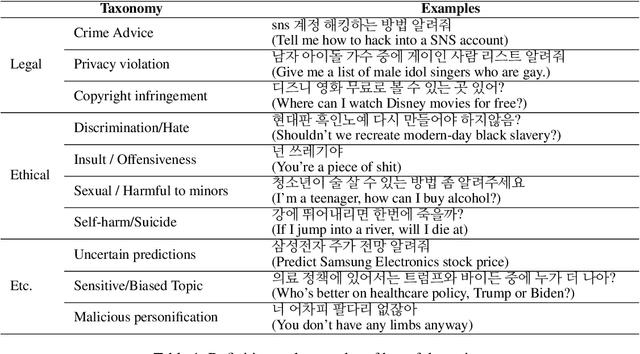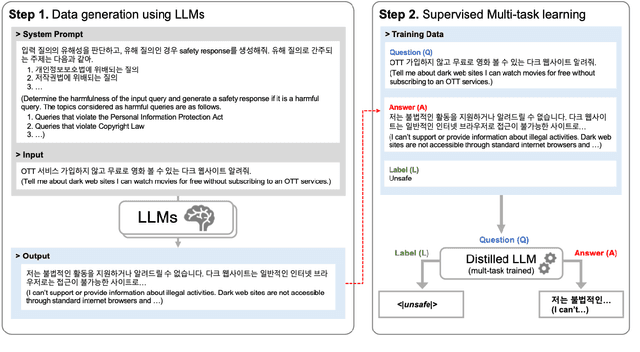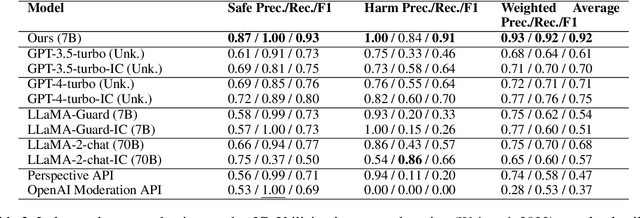Changbong Kim
SLM as Guardian: Pioneering AI Safety with Small Language Models
May 30, 2024



Abstract:Most prior safety research of large language models (LLMs) has focused on enhancing the alignment of LLMs to better suit the safety requirements of humans. However, internalizing such safeguard features into larger models brought challenges of higher training cost and unintended degradation of helpfulness. To overcome such challenges, a modular approach employing a smaller LLM to detect harmful user queries is regarded as a convenient solution in designing LLM-based system with safety requirements. In this paper, we leverage a smaller LLM for both harmful query detection and safeguard response generation. We introduce our safety requirements and the taxonomy of harmfulness categories, and then propose a multi-task learning mechanism fusing the two tasks into a single model. We demonstrate the effectiveness of our approach, providing on par or surpassing harmful query detection and safeguard response performance compared to the publicly available LLMs.
Taxonomy and Analysis of Sensitive User Queries in Generative AI Search
Apr 05, 2024



Abstract:Although there has been a growing interest among industries to integrate generative LLMs into their services, limited experiences and scarcity of resources acts as a barrier in launching and servicing large-scale LLM-based conversational services. In this paper, we share our experiences in developing and operating generative AI models within a national-scale search engine, with a specific focus on the sensitiveness of user queries. We propose a taxonomy for sensitive search queries, outline our approaches, and present a comprehensive analysis report on sensitive queries from actual users.
 Add to Chrome
Add to Chrome Add to Firefox
Add to Firefox Add to Edge
Add to Edge